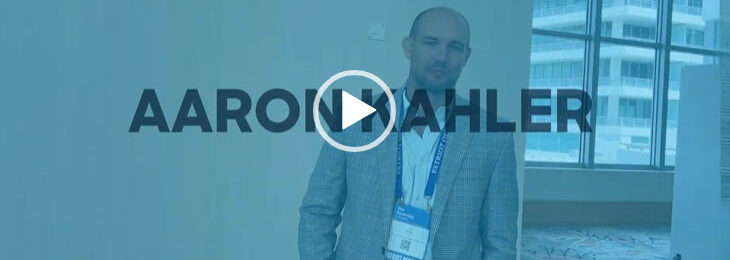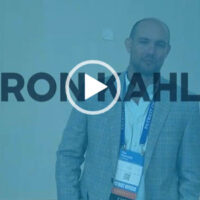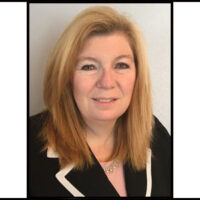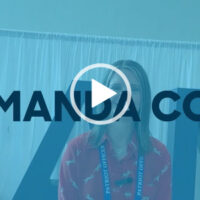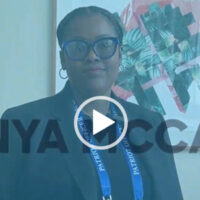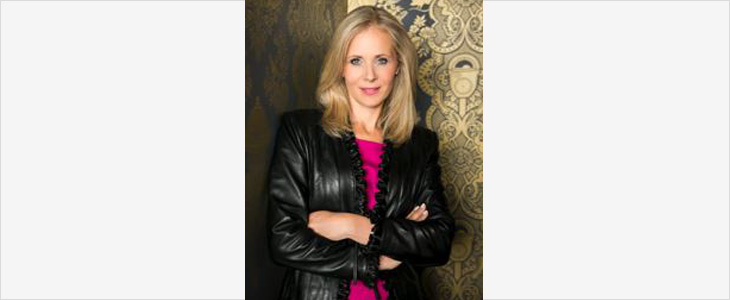
ACAMS Today sat down with Deborah M. Lehr, to speak about her background, professional experience and her passion to protect human heritage. Lehr is chairman and founder of the Antiquities Coalition. Lehr is an accomplished global business strategist who has supported leading global firms and organizations to grow their presence in the world’s most complex markets. Lehr has applied her business acumen and policy knowledge to launch the Antiquities Coalition, which works with governments across the Middle East to fight against antiquities trafficking and their use in funding terrorism and organized crime. As chairman of The Antiquities Coalition, Lehr started a robust high-level dialogue with Antiquities and Foreign Ministers in ten countries in the Middle East on how to preserve and protect our cultural heritage, elevating global understanding and the link between antiquities trafficking and terror networks. That is just one example of the kind of innovation that distinguishes Lehr. “We are bringing our experience, networks, and access to corporate leaders, non-profits and governments; to develop big ideas and break down barriers, to have access and expand markets, as we unite coalitions of partners in the public, private and nonprofit sectors to fight against this horrible crime,” noted Lehr. Her work on fighting antiquities trafficking is recognized by international leaders. Sameh Shoukry, Foreign Minister of Egypt noted, “Egypt is working alongside regional and international partners such as the Antiquities Coalition to stem the flow of stolen antiquities.” UNESCO has nominated Lehr to one of its inaugural lists of accomplished global women speakers. Lehr is also CEO and founding partner of Basilinna, a strategic consulting firm focused in China and the Middle East. She serves as vice chairman of the Paulson Institute, a nonprofit chaired by former Treasury Secretary, Hank Paulson. She is on the Board of the Archaeological Institute of America, the International Advisory Board of the London School of Economics, the World Monuments Fund and the Middle East Institute. Deborah is also a member of the Council on Foreign Relations. UNESCO has nominated Deborah as one of its inaugural list of accomplished global women. She also received the prestigious Hadrian
Award from the World Monument Fund for her work in fighting the illicit trade in antiquities. Lehr has lived and studied around the world, including China, England, France, and Germany. Her writings appear regularly in the Huffington Post, and have been published in Foreign Affairs, US News and World Report, the South China Morning Post, China Daily and Caixin Magazine. She has also appeared on television speaking about China as well as antiquities trafficking.
ACAMS Today: This year the theme for International Women’s Day is, “Think Equal, Build Smart, Innovate for Change.” On a regular day, what does it mean for you to think about equality, build smart solutions and innovate change—inside and outside the office?
Deborah Lehr: It is my great fortune to work with talented and motivated women, both at the Antiquities Coalition (a nonprofit) and at Basilinna (a private consulting firm), both of which I founded. In both organizations, we think outside the box, working with international partners in the public and private sectors to bridge cultural and geographic divides while crafting strategic solutions to new and old challenges. I am also a big believer in thinking big. Why not? You never know what you might achieve. By supporting creative and diverse thinking, as well as actively encouraging life-long learning, our staff stays challenged and curious.
AT: What inspired you to establish the Antiquities Coalition? What were the top three challenges you encountered and how did those turn into opportunities?
DL: The inspiration to form the Antiquities Coalition came to me in 2011. In the midst of the Egyptian Revolution, the Egyptian Museum in Cairo, home to countless antiquities (including King Tut’s tomb), was invaded by looters who were stopped when a group of motivated citizens formed a human chain around the museum. This passion touched me deeply. My good friend, Dr. Zahi Hawass, then Minister of Antiquities, was under great pressure to protect Egypt’s cultural heritage while the country was in chaos. I reached out to see how we could help, and the end result was the launch of a nonprofit, first focused on helping Egypt better protect its antiquities during this time of crisis. This mission to combat cultural racketeering or the illicit trade in ancient art and artifacts, and their link to organized crime, armed conflict and violent extremism, which has expanded worldwide since then.
One of my strengths, but also a weakness is that I like to think big. My view is that much can be accomplished if you are willing to work hard and let others take the credit. And why work on something small if you can develop something big with the same amount of effort?
One of the initial challenges that I faced was a simple matter of knowledge. I am not an archaeologist, but I was able to use the skills that I had developed within the U.S. government as a trade negotiator with China to manage teams of disparate experts to collectively address major policy issues. Bringing together people with different backgrounds and bodies of expertise has allowed the Antiquities Coalition to develop, innovate, and offer cross-disciplinary solutions to reduce the illicit trade in antiquities. Much of our strength lies in our diversity. Hence, one of our initial activities was to bring together experts from a wide range of backgrounds, including the heritage, legal, military, national security, and law enforcement communities, to develop policy recommendations for the U.S. government, international organizations and art market, in order to protect our shared heritage. We ultimately issued a report with thirty—one policy recommendations, some of which have now been implemented and others that we continue to work toward. This task force was the first of its kind in the heritage field.
We soon realized that we were at the forefront of a new field in archaeology. Limited research had been done on the size and patterns of the illicit trade and researchers had not examined this as a larger problem, aside from the destruction of culture. While looting is an age-old phenomenon, the scale of plunder in the last decade and its links to terrorist financing as well as organized crime, are now bringing this issue into the realm of law enforcement, national security and foreign policy. We have seen similar patterns in our colleagues’ work against the illicit wildlife trade.
An initial effort of the Antiquities Coalition was to bring together Arab League member countries at the ministerial level to raise awareness, in order to demonstrate that regional strategies were required to halt cultural racketeering. Middle East experts told us that this summit could never happen, yet with the assistance of our partners (the Egyptian government and the Middle East Institute), we first brought together ministers from ten countries to agree upon the Cairo Communiqué. This statement outlined the steps each government would take to fight the illicit trade. The following year, seventeen countries sent their ministers for a second meeting. This was a significant accomplishment for a young organization and provided a platform for governments to discuss the actions that they were taking as well as to demonstrate the political input to fight against cultural racketeering.
Despite being a very small organization, today we work with governments—including foreign and defense ministries—across the Middle East, Asia, Europe, and the United States to raise awareness of the illicit antiquities trade and educate them about how best to protect their own heritage.
AT: As a female founder, what is your advice on how to convert an idea into action?
DL: One of the greatest joys I have had professionally is building organizations and institutions. The key, however, is understanding that achieving big dreams requires many small steps. Blazing a trail in a new field is exciting and inspiring but requires changing attitudes, building alliances, and being willing to take a risk for what you believe in. One has to focus on the end goal, but develop a realistic and detailed plan of action to lead it toward the end result.
AT: If you could have dinner with any woman from history, who would it be and what would you ask them?
DL: I have always been fascinated by Clare Boothe Luce, who was a multitalented woman. In her youth, she was an active suffragette, working for the National Woman’s Party in Washington, D.C., and Seneca Falls, New York (the birthplace of women’s rights in the United States). She traveled the world, including as the first woman appointed to a major ambassadorial post, serving in Italy and Brazil. She demonstrated tenacity. She also interviewed for a position at Vanity Fair and after her interview, she simply sat down in an empty office to work, showing up each day until they finally hired her. Luce went on to become the Editor of Vanity Fair. She was also a successful playwright and penned multiple shows, including “The Women,” which ran on Broadway and was made into a film. A remake was issued in 2008, and its subject matter is still relevant today. There are so many questions that I would want to ask, including how she managed to navigate across so many different fields successfully in her professional life.
AT: With more than 70,000 ACAMS’ members fighting financial crime worldwide, how can the ACAMS community enhance women’s empowerment?
DL: I cannot overemphasize the importance of women supporting other women in their professional careers, particularly in traditionally male-dominated industries. I am a strong believer in mentorship. I encourage young professional women to think creatively and leverage their experiences into new, inventive solutions. Don’t hesitate to take a seat at the table, think big, and stand up for what you believe in.

